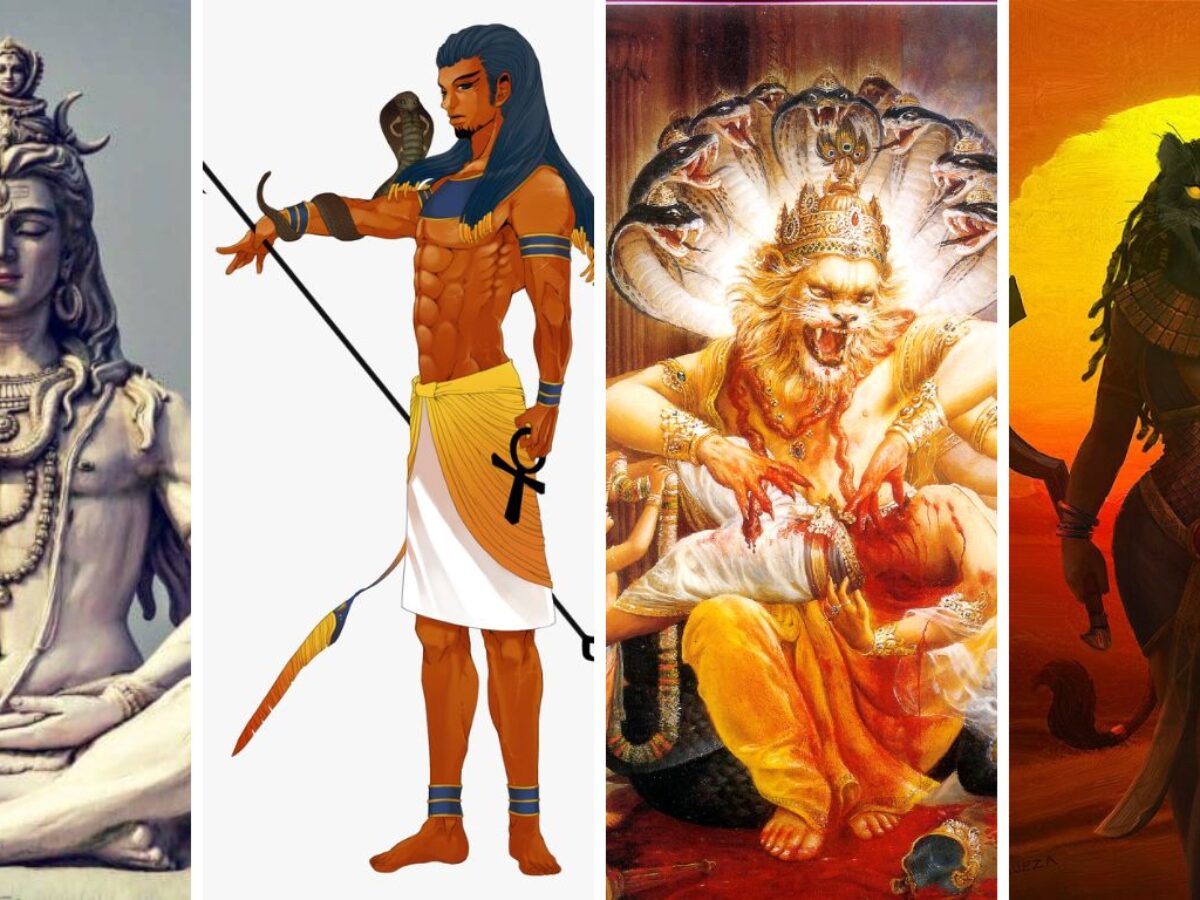This article compares the abilities of Egyptian deities and Hindu gods and goddesses. Ancient Egyptians believed in a large number of gods and goddesses, each with their unique set of abilities, such as Osiris who was responsible for judging the souls of the dead and Horus who was known as the god of the sky, war, and hunting. Hinduism also has numerous gods and goddesses worshipped by over a billion followers, with Shiva known as the destroyer, Vishnu as the preserver, and Kali as the goddess of destruction. Both religions reflect the beliefs and cultures of their respective societies and continue to be worshipped worldwide.
Comparing the Abilities of Egyptian Deities vs. Hindu Gods and Goddesses
Introduction
Religion plays a significant role in shaping cultures all over the world. For centuries, people have been worshipping gods and goddesses, believing that these deities possess unique abilities and powers. Egyptian and Hindu religions are two of the oldest religions in the world, both of which have a long history of polytheism. In this article, we shall compare the abilities of Egyptian deities and Hindu gods and goddesses.
Egyptian Deities
The ancient Egyptian religion recognized a large number of gods and goddesses, each with their unique set of abilities. These divinities were often depicted with human-like qualities, with the body of humans and the head of animals to represent their powers. The following are some of the abilities of Egyptian deities:
Osiris
The god of the dead, Osiris was a revered deity among the ancient Egyptians. He was responsible for judging the souls of the dead and deciding their ultimate fate. Osiris was also associated with fertility, the Nile River, and agriculture.
Horus
One of the most famous Egyptian deities, Horus was known as the god of the sky, war, and hunting. He was typically depicted as a falcon or a hawk and was believed to be the protector of the pharaohs. Horus was also associated with the sun and was believed to be the son of Osiris.
Anubis
Anubis was the god of mummification and the afterlife. He was often depicted with the head of a jackal and was responsible for guiding the souls of the dead. Anubis was also associated with embalming and was believed to be the protector of graves.
Hindu Gods and Goddesses
Hinduism is the third-largest religion in the world, with over a billion followers. It has a long history of polytheism, with numerous gods and goddesses worshipped by its adherents. The following are some of the abilities of Hindu gods and goddesses:
Shiva
Shiva is one of the most important gods in Hinduism. He is known as the destroyer and is often associated with death and rebirth. Shiva is also believed to be the creator of yoga and is regarded as the patron saint of dancers and musicians.
Vishnu
Vishnu is one of the most important gods in Hinduism and is known as the preserver. He is often depicted with four arms and holds a conch shell, a discus, a mace, and a lotus flower. Vishnu is believed to be responsible for the maintenance of the universe and is associated with protection and goodness.
Kali
Kali is the goddess of destruction and is often depicted with a fierce appearance, with blood dripping from her mouth and a necklace of skulls around her neck. She is associated with time, change, and death and is believed to be the destroyer of demons.
Conclusion
The abilities of Egyptian deities and Hindu gods and goddesses are numerous and varied. Both religions possess gods and goddesses with unique powers and abilities, which reflect the beliefs and cultures of their respective societies. These deities continue to be worshipped and revered by millions of people worldwide, attesting to the enduring power and influence of religion in shaping human society.
